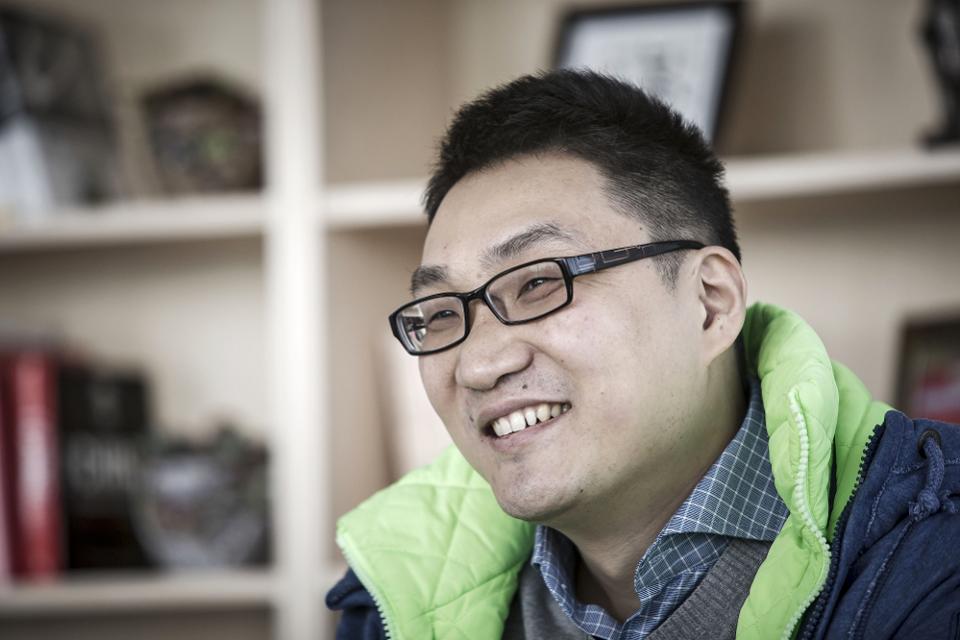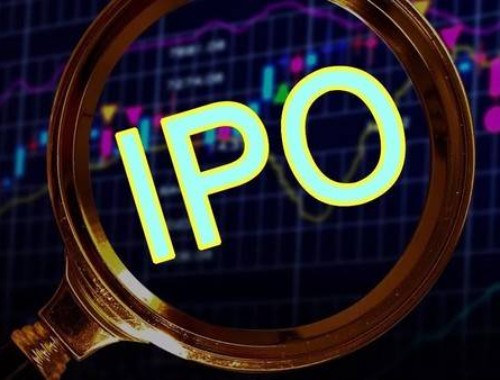IPO Of Chinese E-Commerce Firm Pinduoduo Mints New Young Billionaire
Colin Huang, founder of Chinese e-commerce firm Pinduoduo, has joined the ranks of the world’s billionaires following the company’s debut on Nasdaq on Thursday. The stock closed at $26.70, valuing the company at $29.6 billion and Huang’s 46.8% stake at $13.8 billion.
Colin Huang, founder of Chinese e-commerce firm Pinduoduo, has joined the ranks of the world’s billionaires following the company’s debut on Nasdaq on Thursday. The stock closed at $26.70, valuing the company at $29.6 billion and Huang’s 46.8% stake at $13.8 billion. This makes the 38-year-old tech founder the 13th wealthiest Chinese billionaire, and one of the youngest tech tycoons in China. Huang is also known by his Chinese name, Zheng Huang.

Colin Huang, founder of Chinese e-commerce firm Pinduoduo
Huang’s brainchild, Pinduoduo, is also incredibly young. Launched less than three years ago – in the face of stiff competition from established e-commerce firms Alibaba and JD.com, Pinduoduo has been able to attract nearly 200 million active monthly customers by targeting lower-income customers than its competitors do. It encourages group buying and awards discounts to groups of people who buy in bulk; some use the WeChat app to share with others what they plan to buy, including $5 sheets and packs of toilet paper for $1.
But Actually, after being listed on the U.S. Nastaq, in the China Domestic emerged lots of discussion and disbute about the fake products selled by Pinduoduo. Lots of Chinese medias and famous person, including TV company Sky Worth and famous writer, they stepped up to accuse Pinduoduo selling the sham and shoddy commodities. (View more: China Price-for-value Social Retail Platform "Pinduoduo" Listed on the Nastaq, Caused a National Discussion)
Some have likened the Pinduoduo's model to a mashup of Groupon and Facebook. Huang himself describes the company as a combination of Costco and Disneyland — where value for money meets fun.
Pinduoduo raised venture capital funding from the Chinese arm of VC firm Sequoia, China-based private equity firm Banyan Partners Funds, and Chinese internet giant Tencent, the latter of which owns 17% of Pinduoduo, according to the firm’s most recent filing with the U.S. Securities and Exchange Commission.
PDD recorded revenue of $278 million in 2017 and ramped up to $220 million in revenue in the first three months of 2018, according to its prospectus filed with the SEC. It recorded net losses for those periods in the tens of millions of dollars.
There have been bumps in the road. Just ahead of the IPO, Forbes reported that Pinduoduo was being sued for trademark infringement in federal court in New York (Pinduoduo declined to respond to the allegations in the lawsuit due to the quiet period ahead of the IPO).
In his letter to shareholders, Huang cited social responsibility as one of the reasons he is taking Pinduoduo public. “[W]ith public scrutiny and regulatory supervision, we may grow better and stronger,” he wrote.
Pinduoduo is Huang’s fourth startup. He launched his first company, e-commerce site Ouku.com, in 2007, but his penchant for startups manifested even earlier.
Huang studied computer science at Zhejiang University in his native Hangzhou, and later at the University of Wisconsin, Madison. Upon graduation in 2004, Huang turned down a job offer from Microsoft. “I could see what I would become at Microsoft ten years later,” he wrote in a 2016 blog post.
He chose instead to join Google as a software engineer. At the time, Microsoft’s market capitalization exceeded $200 billion. Google didn’t go public until a few months later.
In 2006, Huang moved back to China as part of Google China’s inaugural team alongside Kai-Fu Lee, who now runs venture capital group Sinovation Ventures. A year later, however, Huang made another counter-intuitive decision – he quit his job at Google, not even waiting until his options vested in full. That was when his serial entrepreneurship began.
He sold his first startup, Ouku.com, in 2010. His second and third companies are an e-commerce backend services firm (which is still operating) and an online game developer.
Huang has connections to some of China’s most powerful people in tech. While he was still in college, he was approached online by William Ding, founder of online game firm NetEase, who sought his help for a technical problem. Ding then introduced him to Duan Yongping, an investor and entrepreneur behind smartphone firms Oppo and Vivo, who won a bid to have lunch with Warren Buffett in 2006, and took Huang with him, according to a report from Chinese business magazine Caijing.
Huang remains an admirer of Buffett, and, in an article published on his blog, praises the billionaire investor for his philanthropic efforts. According to Pinduoduo’s prospectus, Huang plans to put 2.3% of his Pinduoduo shares in a charitable foundation.
(Source: Forbes)





 沪公网安备31010402003309号
沪公网安备31010402003309号



